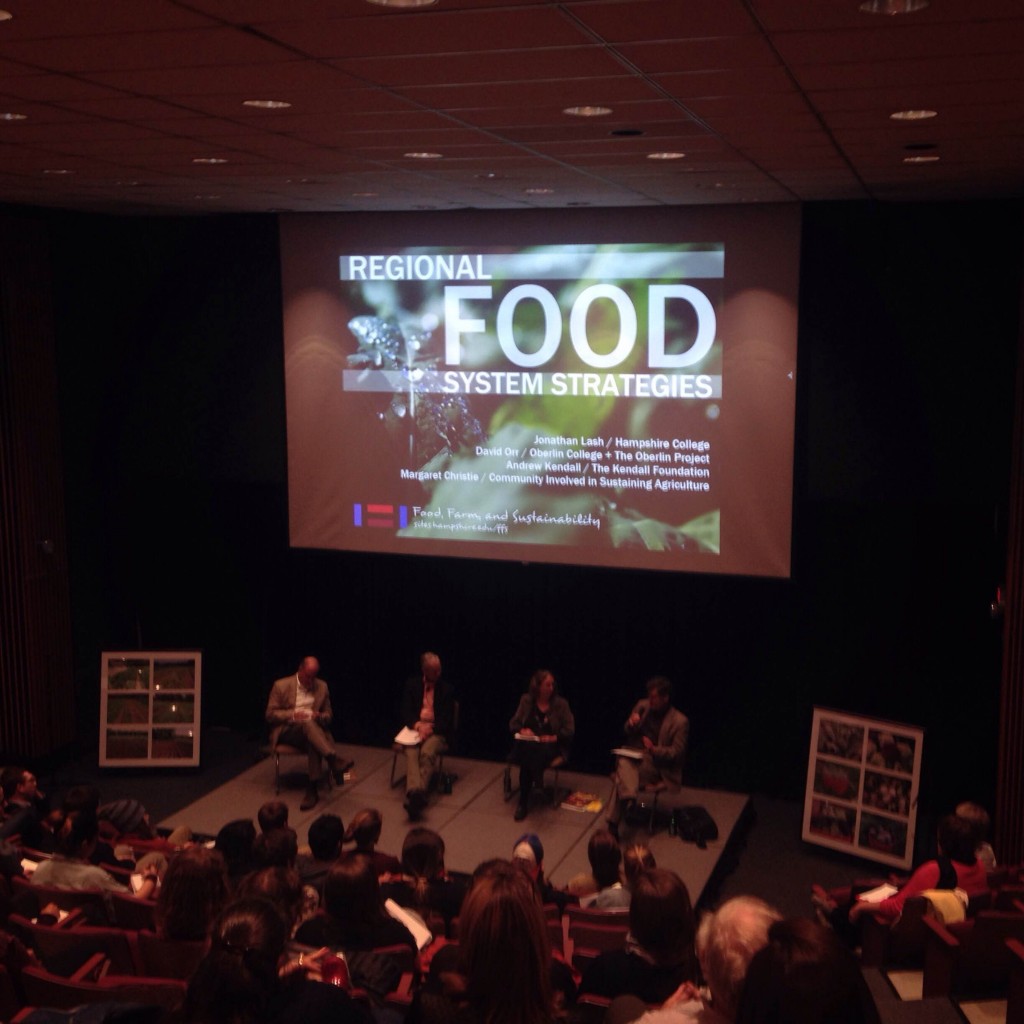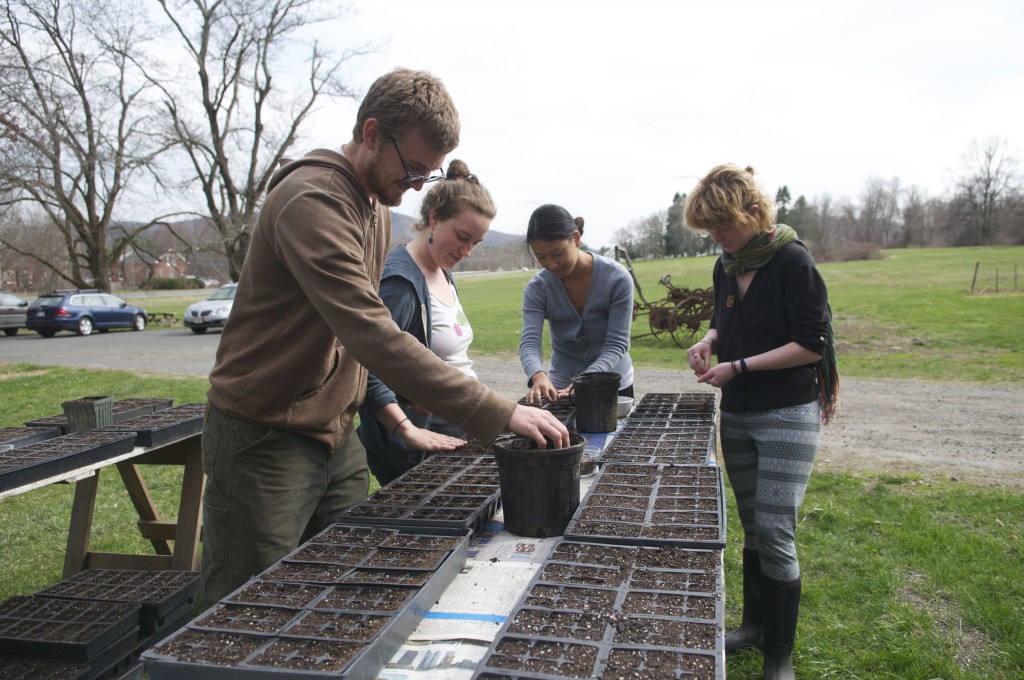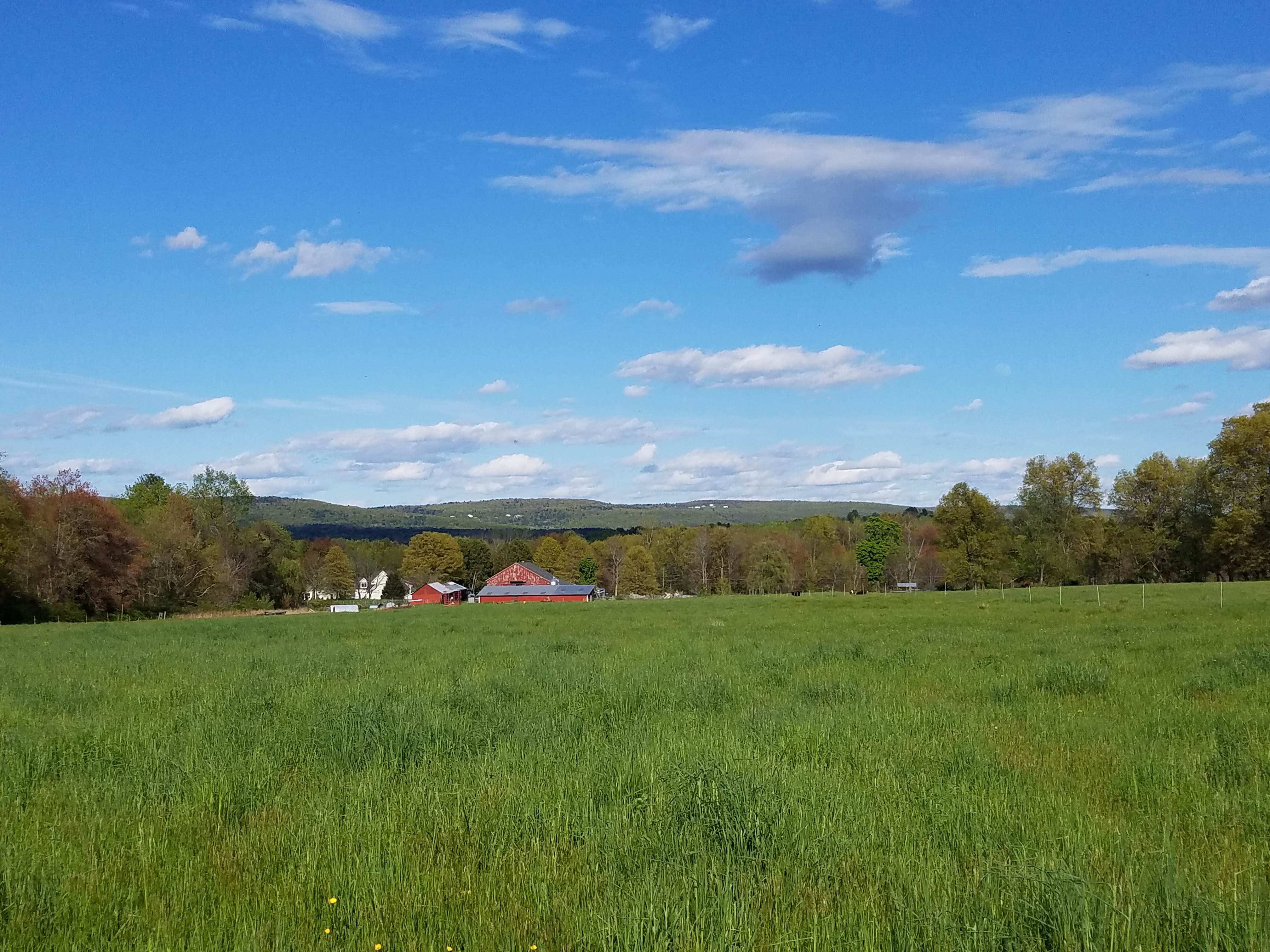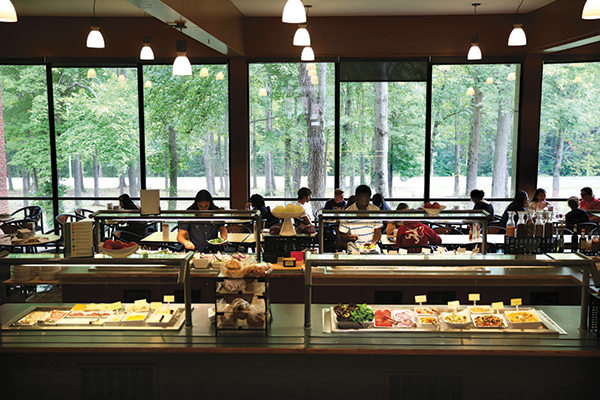In the spirit of Earth Day, the Hampshire College Food, Farm, and Sustainability office brought together panelists David Orr of Oberlin College, Margaret Christie of CISA (Community Involved in Supporting Agriculture), and Andy Kendall of the Kendall Foundation for a question and answer session on regional food systems change moderated by Hampshire College President Jonathan Lash.
 The discussion began with a question from Jonathan on each of the panelists’ backgrounds in food systems and their thoughts on the role of higher education in creating sustainable local food systems.
The discussion began with a question from Jonathan on each of the panelists’ backgrounds in food systems and their thoughts on the role of higher education in creating sustainable local food systems.
The speakers highlighted the importance of universities and colleges in generating a sustainable market for local farmers. David Orr spoke to his own experience working at Oberlin, evaluating the potential for local food purchasing and working to support local farmers. Andy Kendall brought a regional perspective and described the Kendall Foundation’s efforts working to find regional levers to catalyze change on a greater scale. He noted New England’s consumers provided such a lever and that by influencing the buying habits of both individuals and institutions, markets would be created for sustainable food producers. Margaret Christie focused on CISA’s efforts to increase local foods awareness in the Pioneer Valley. The organizations primary goal in doing this is to support farmers’ marketing capacities and communicate to wider audiences the importance of buying local foods in supporting local economies. Panelists covered a range of scales from the local to the regional to the national. Each indicated that universities and colleges had the ability to stimulate food systems change through their purchasing power and that by redirecting these dollars towards local farmers they might greatly strengthen growing sustainable foods markets.
After this first round of responses, questions were taken from the audience starting with Andrea Stanley, farmer and maltster at Slow Tractor Farm and Valley Malt. Her interest was primarily in the Five College’s current efforts to provide technical support to farmers in the area, highlighting the need for active community engagement in agriculture, moving beyond producer/consumer binaries.
From this micro-scale the conversation shifted to the impact of global economies on the vitality of local agriculture. A student asked panelists how, in light of ‘trade’ deals such as the Trans-Pacific Partnership, local food economies might build more than markets and engage in the political world that determines the conditions of its existence. The room emitted a chuckle at the scope of the question, and David Orr alluded to the opening of a can of worms before jumping into discussion. Panelists acknowledged global capital and industrial food production as significant threats to local food systems, but contended that consumers have significant leverage to change our food system by “voting” with their forks. Andy Kendall brought up the importance of cross-issue coalition building in challenging the political power of corporations and Margaret Christie related CISA’s experience making connections with environmental and social justice activist groups in this area. David Orr spoke of the decline of an engaged citizenry in favor of consumerism. He argued the need for more active citizen participation in politics on all levels.
 The conversation ended with a question on what the regional food system might look like post-capitalism. Panelists noted that the aim of their efforts was to generate sources of community oriented capital.
The conversation ended with a question on what the regional food system might look like post-capitalism. Panelists noted that the aim of their efforts was to generate sources of community oriented capital.
The panel was an excellent end to Hampshire’s Earth Day events bringing together the threats of climate change and environmental degradation with thoughts on the way we grow, distribute, and eat food. If you’d like to read more from any of these deep thinking participants we’ve put together a list of some further reading:
An op-ed for The Daily Hampshire Gazette by Margaret Christie and CISA executive directive Philip Korman on the impact of buying local foods in the wider world.
An excerpt from David Orr’s book Down to the Wire.
A slideshow from the Kendall Foundation detailing their efforts to build New England regional food systems
See you next Earth Day!
Written By Walter Poulsen
Food, Farm, and Sustainability Vervane Fellow



Sustainability at the local level is definitely the long-term key to success. However, I think this battle needs to be fought on both fronts. Increasing sustainability on national and global scales will have a profound impact. Making smaller changes to improve efficiency in mass produced goods will have a large effect.